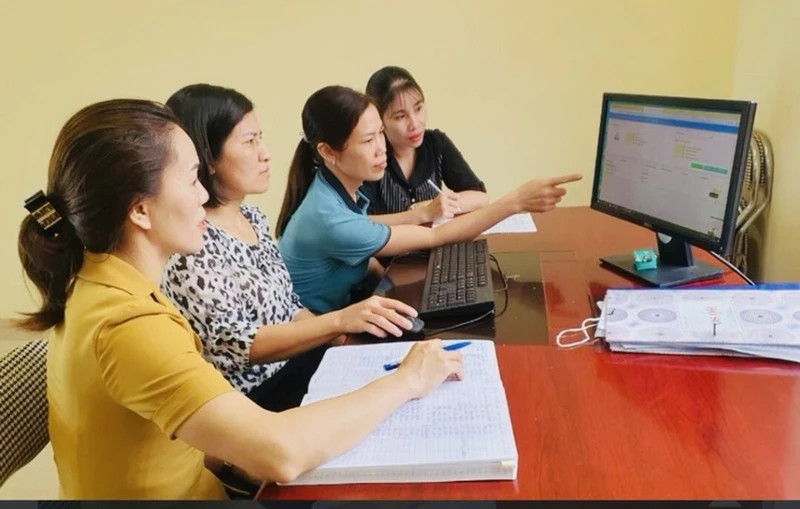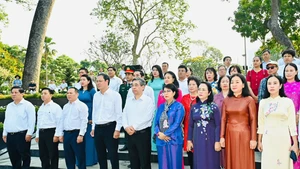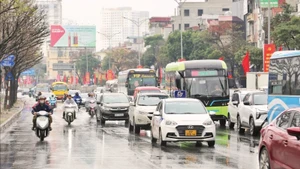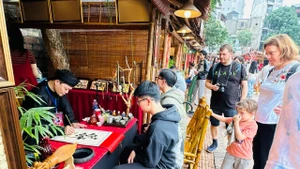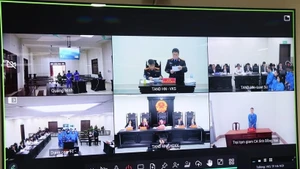The equal participation of women in the digital transformation process is not only a goal for gender equality but also brings economic benefits and effectiveness when the process incorporates the perspectives and experiences of all groups, including members of ethnic minority women’s associations.
Recently, Linh Thi Phuong, President of the Women’s Union of Khau Vai Commune (Meo Vac District, Ha Giang Province), has created communication videos promoting the Party’s policies and the State’s laws in the Mong ethnic language. These videos are shown during union meetings and shared on social media, attracting attention and engagement from local members and women.
This is considered an innovative approach that has achieved high effectiveness in spreading information and knowledge to ethnic minority communities. Linh Thi Phuong is also one of the two winners of the first prize in the “Application of information technology in organising union activities” competition in 2024, organised by the Vietnam Women’s Union.
The Women’s Union of Khau Vai Commune has consistently performed well in its movements, campaigns, and core union tasks. However, as a highland commune with a vast area and many difficulties in the lives of the people, the application of information technology in daily life, production, and union activities still faces many limitations.
“Based on the real situation in our locality, we brainstorm ideas, develop scripts, choose exemplary union members as actors, practice together, film using mobile phones, and edit the videos with software on computers. The content is concise, easy to understand, and the scenes are realistic and relatable to the daily life of the people. We also make versions in the Mong ethnic language to ensure the best possible outreach,” Phuong shared.
After each video screening, the organiser provides additional explanations to union members about the information and knowledge shared in the video, improving the effectiveness of the meeting compared to traditional methods.
Phuong also mentioned that in some areas where the infrastructure is lacking, the union will broadcast the video’s audio via the village’s loudspeakers or the community’s mobile speaker system. Additionally, the videos are uploaded to the union’s Zalo groups for interaction and feedback, helping to improve the content and increase the quality of union meetings and ultimately strengthening the organisation.
In the context of digital transformation and supporting women’s participation in it, to prevent cases of women becoming victims of online fraud due to a lack of knowledge or skills, the Standing Committee of the Women’s Union of Binh Dinh Province has established the model “Women’s safe integration into the digital environment” with 40 members in Ghenh Rang Ward, Quy Nhon City. This is the first pilot model set up by the Women’s Union of the province.
Currently, the model operates effectively with monthly meetings. The model’s leadership invites police officers to conduct training sessions for members on how to use social media, identify harmful online behaviours, and raise awareness so that members can also spread the information to their families. The model has been expanded to other districts such as Vinh Thanh and Phu Cat, with over 70 members.
In addition, the Women’s Union of Binh Dịnh Province actively supports members and women to participate in the development of the digital economy through activities promoting the Party’s policies and the State’s laws on entrepreneurship, business development and cooperatives, as well as the role of women in the digital economy.
Other areas of focus include providing training in technology knowledge and skills to connect markets for product consumption, applying science in production and business, supporting participation in e-commerce platforms, online business activities in accordance with legal regulations, and promoting electronic payments towards a cashless society. To date, four union branches have launched models for “Application of information technology in union activities.”
Nguyen Thi Minh Huong, Vice President of the Vietnam Women’s Union, stated that the union recognises its responsibility and role in advancing the use of information technology toward digital transformation in order to better carry out its political duties and effectively support women’s participation in the national digital transformation process.
Union leaders at all levels have been continuously striving to improve their skills, innovate, and actively apply information technology in management, operations, and organising union activities. They aim to build a more developed, professional, and efficient union.
Women members should actively learn, participate, and adapt to the digital transformation, embrace science and technology to improve productivity, work efficiency, and economic development; enhance their quality of life; and manage happy families and raise children appropriately in the digital age. They should play both the role of beneficiaries and active participants in the national digital transformation programme.
